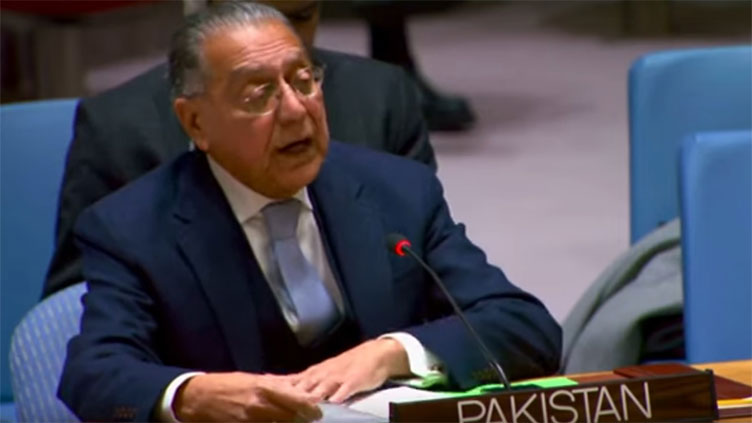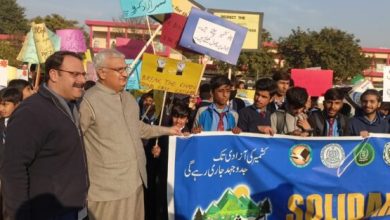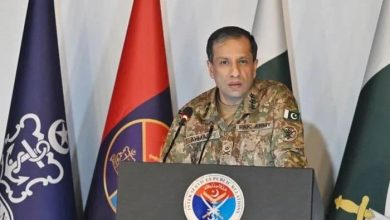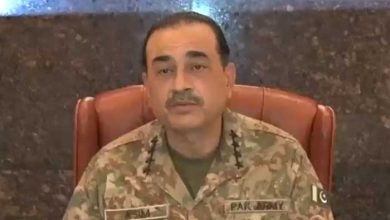At UN, speakers highlight Kashmir and Palestine disputes at Pak-sponsored event
 United Nations: Senior diplomats and experts from a range of countries have called for advancing the principle of the right of self-determination to resolve key global issues, including Kashmir and Palestine disputes, at a well-attended event held at UN Headquarters in New York.
United Nations: Senior diplomats and experts from a range of countries have called for advancing the principle of the right of self-determination to resolve key global issues, including Kashmir and Palestine disputes, at a well-attended event held at UN Headquarters in New York.
According to Kashmir Media Service, the discussion on “Challenges to the realization of the Right to Self-Determination in the Contemporary Global Context” was sponsored by Pakistan.
Pakistan’s UN Ambassador Munir Akram presided over the meeting in which the panelists were Ms Fionnuala NiAolain, a professor at the University of Minnesota and former UN rights expert; Ambassador Maged Abdelaziz, permanent observer of the Arab League at the UN; Dr Ghulam Nabi Fai, Chairman of the World Forum for Peace and Justice, and Hameed Ajibaiye, permanent observer for OIC at the UN. After the presentations from the panelists, ambassadors and representatives of Algeria, Turkey, Morocco, Syria, Iran and India participated in the general discussion in which they also raised issues of concern to them.
In his opening remarks, Ambassador Akram highlighted the long-running Kashmir and Palestine conflicts, warning that these unresolved issues posed a threat to international peace and security. He said the right of self-determination was the “bedrock” of the modern international system, and the fundamental principle of the UN Charter. But, he said there were still examples of where peoples continue to be denied the right of self determination. “I would focus on the fact that we face two situations at least, where the right of self-determination is being flagrantly denied; one is Palestine and the second is Jammu and Kashmir.”
The Pakistani envoy said the denial of self-determination to the people of Jammu and Kashmir also deserves the full attention of the international community, pointing out that massive violations of human rights were taking place there. “And the dispute over Jammu and Kashmir between India and Pakistan is an ever-present threat to international peace and security,” he added.
Ambassador Akram warned that the threat of a conflict which has happened in the past, could happen again. “A conflict between two nuclear-armed states is a sobering thought or should be a sobering thought for the international community.” The Kashmir tragedy, he said, has intensified after the unilateral measures taken on August 5, 2019 that ended the statehood of Kashmir with India using brutal measures to clamp down on the unrest in besieged Kashmir.
“With regard to both the situations in Palestine and Kashmir, and I suspect elsewhere, where peoples are oppressed and occupied, a lesson of history has been that colonial power has never succeeded in suppressing the right of self-determination of a people who are determined to sacrifice all for their freedom and liberation from foreign occupation.”
Ambassador Akram also pointed out the “communality” of India’s position with that of Israel – both countries denying the right of self-determination to the people of Kashmir and Palestine, respectively.
Ambassador Hameed Opeloyeru, OIC Permanent Observer to the UN said, “The OIC firmly supports the legitimate struggle of the Kashmiri people for the realization of their inalienable right to self-determination. OIC has always declared that the final settlement of the Jammu and Kashmir dispute, in accordance with the UN Security Council resolutions, is indispensable for a durable peace and security in South Asia.”
Ambassador Opeloyeru said the OIC would continue to support the principles and objectives of UN Charter which would include recalling the numerous unimplemented UN Security Council resolutions on Jammu and Kashmir which declare that the final disposition of the State of Jammu and Kashmir will be made in accordance with the will of the people, expressed through the democratic method of a free and impartial plebiscite, conducted under the auspices of the United Nations.
During her intervention, Ms Suman Sonkar, the Indian delegate, parroted India’s traditional mantra that Kashmir is an integral part of India and will remain so; and that there is peace and development in Kashmir.
Dr Ghulam Nabi Fai, the Chairman of World Forum for Peace Justice who hailed from occupied Kashmir, called the Indian delegate’s remarks irrelevant and misleading. He raised two questions; one, India should ask Antonio Guterres why he insists that Kashmir conflict should be resolved under the UN Charter and applicable UN Security Council resolutions, if it was an integral part of India; and second, given that there is peace and development in Kashmir, then why India needs to keep 900,000 of its military and paramilitary stationed in Kashmir?








